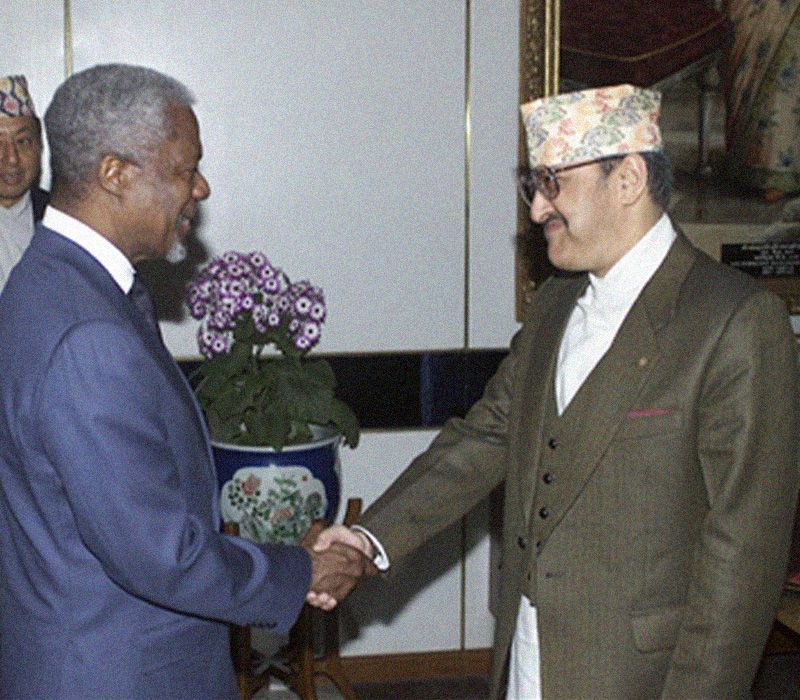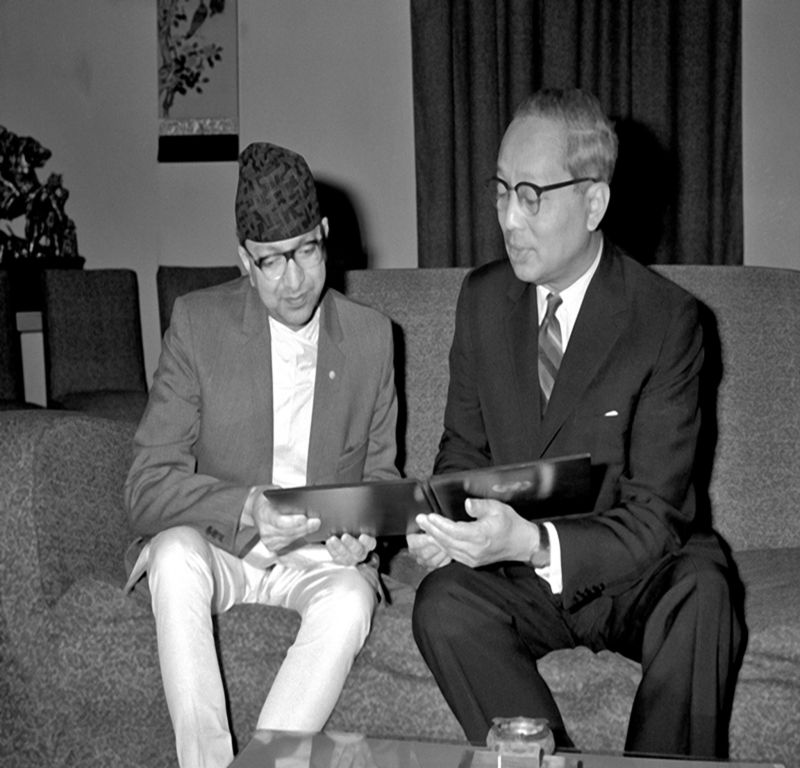FOREIGN RELATIONS WITH

Since emerging on the global stage in the 1950s, Nepal has actively engaged with international organizations.
Nepal’s membership in the United Nations in 1955 during HM King Mahendra’s reign marked a pivotal moment in the kingdom’s diplomatic history. King Mahendra further expanded Nepal’s international connections by welcoming the Peace Corps in 1962, bringing hundreds of American volunteers to serve in education, agriculture, and health sectors across the Himalayan nation.
Under King Birendra’s visionary leadership, Nepal established itself as a committed contributor to UN peacekeeping operations—a tradition that has led to over 150,000 Nepali personnel serving in peacekeeping missions worldwide. King Birendra’s diplomatic legacy includes his instrumental role in establishing the South Asian Association for Regional Cooperation (SAARC) in 1985, strategically positioning Nepal within regional frameworks and fostering cooperation among South Asian nations.
The royal family consistently represented Nepal with distinction at high-level UN gatherings, where they advocated effectively for the interests of landlocked and least developed countries. During King Gyanendra’s reign, Nepal maintained active participation in multilateral institutions including the World Bank, International Monetary Fund, and World Trade Organization.
Nepal’s commitment to multilateralism established during the monarchy has created a foundation for its continued international engagement, positioning the country as a respected voice in global forums despite its size and geographic challenges.


